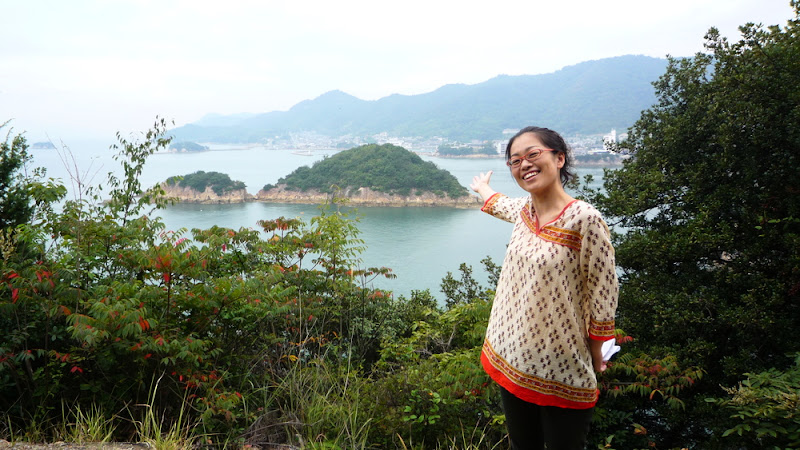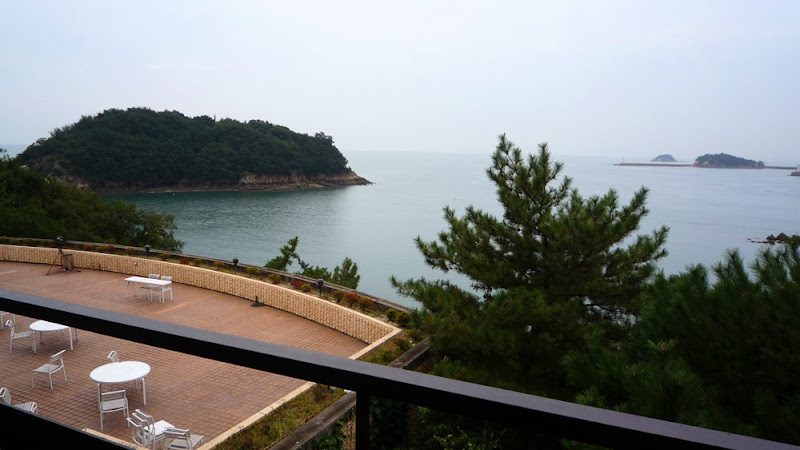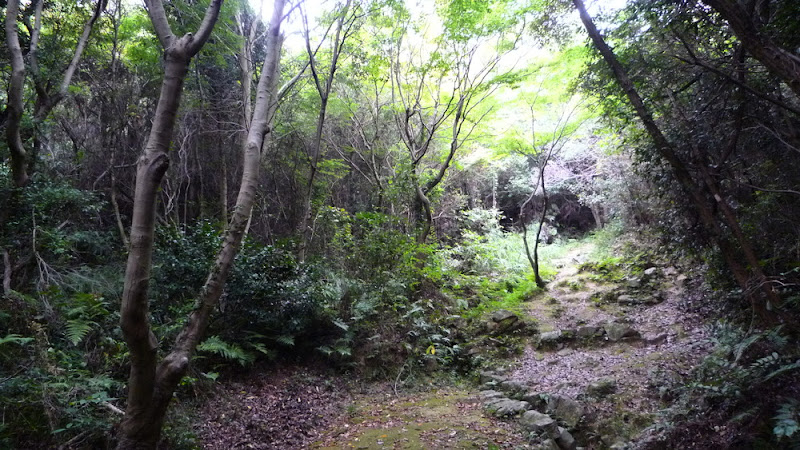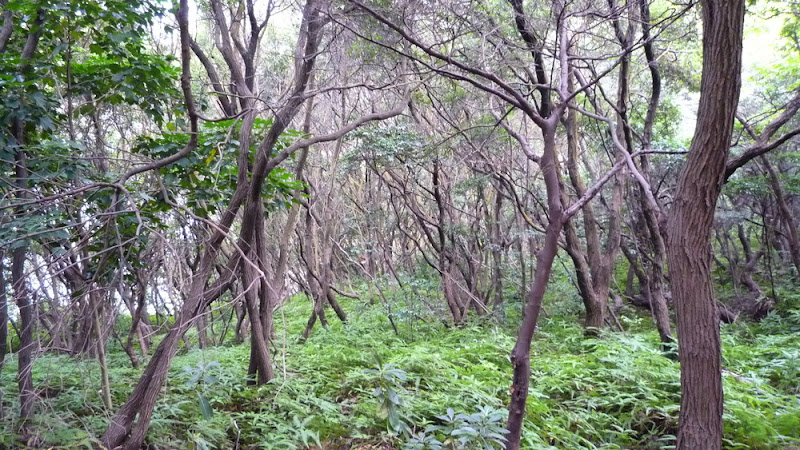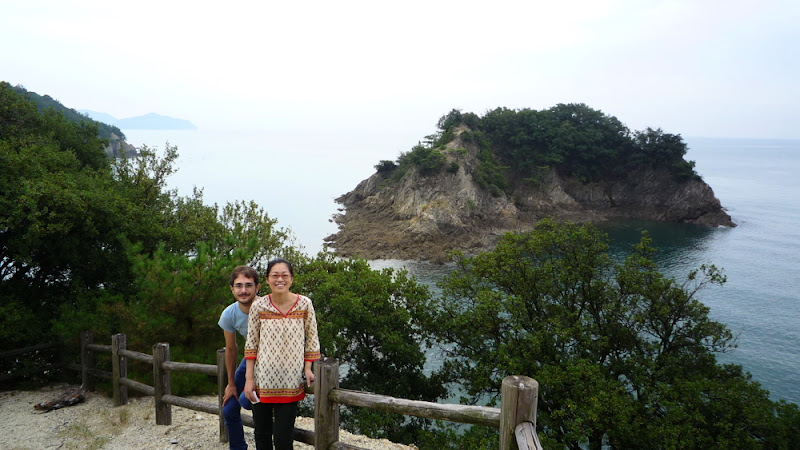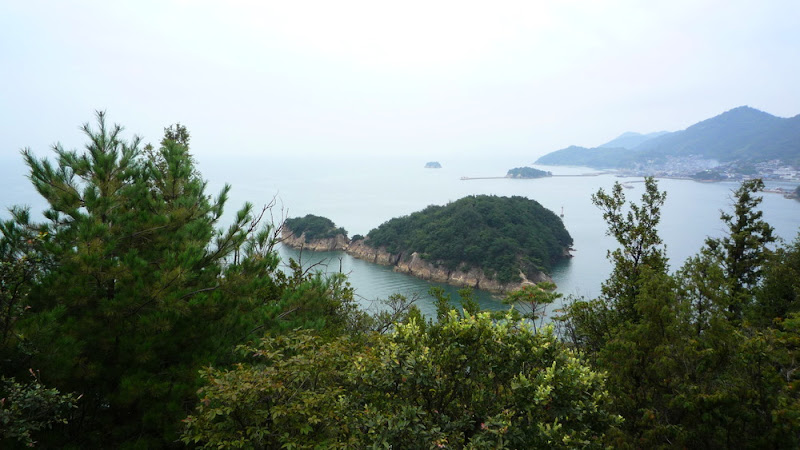Hoy por fin compartimos con vosotros las maravillosas vistas que hay desde Sensuijima.
今日はとうとう仙酔島からのすばらしい眺めを共有します。
Today I’m at last sharing the gorgeous views from Sensuijima.
Esto solamente es el paisaje que se veía desde la habitación del hotel Kokokara.
これはただ「ここから」の部屋から見える景色だ。
This is just the landscape from our room at Kokokara.
Subiendo a la montaña para encontrar mejores vistas, encontré este sitio que parece sacado de La Princesa Mononoke.
もっといい眺めを求めて山を上ろうと思ったら「もののけ姫」から出てきたような風景を見つけた。
Going up the mountain to get better views, I found this place that looks like it’s from Princess Mononoke.
Estos árboles están inclinados, con el tronco perpendicular a la ladera de la montaña.
ここの木は斜めになっている。山の斜面に直角に木の幹が伸びている。
These trees are standing oblique, making a 90 degrees angle with the mountain’s slope.
Puesta de sol ante una piedra conmemorativa de no se qué.
夕暮れ。この石碑が何なのんか確認するのを忘れた。
Sunset before a monument I forgot to check so I don’t know what it is.
Bajando una cuesta que luego tendríamos que subir.
後で上ることになる坂を下る。
Walking down a slope we’d have to walk up afterwards.
Y esta es la vista desde lo más alto que llegamos a subir.
そしてこれは行った中で一番高いところからの眺め。
And this is the view from the highest spot we got to.

